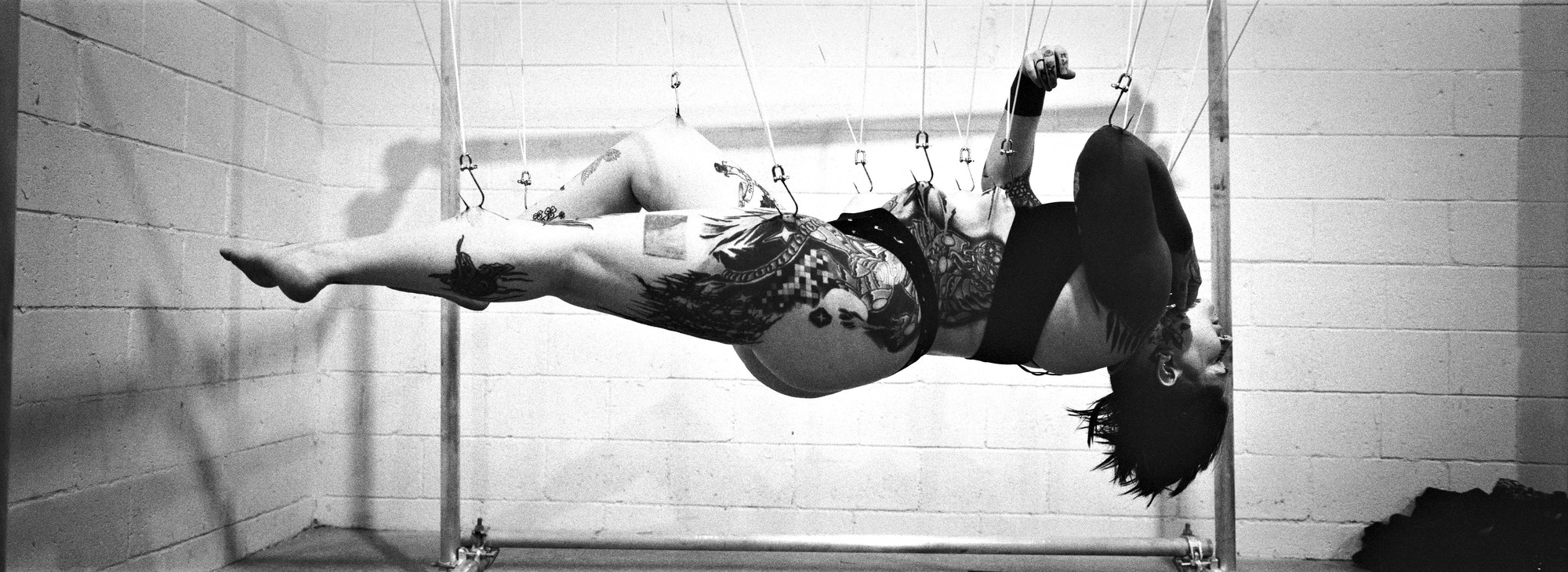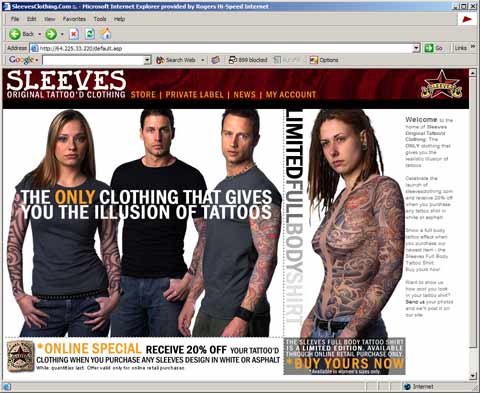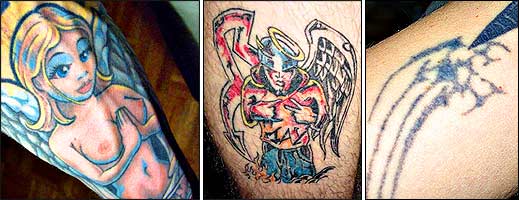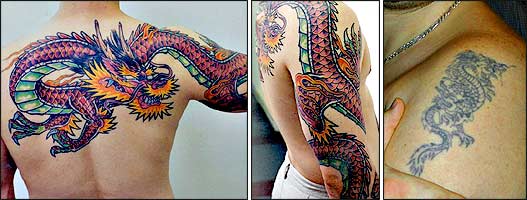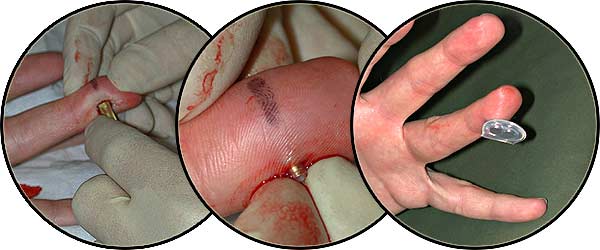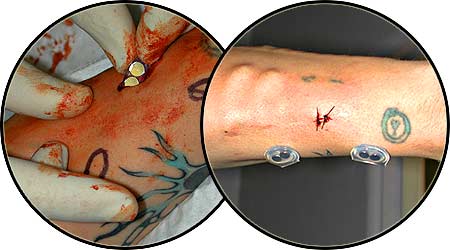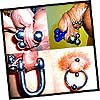
Straightedge and Modified
“Those drugs are gonna kill you if I don’t get to you first
Make the wrong choice and I’m gonna judge you
I hope that fucked up head can tell you what to do.”
- JUDGE, You’ve Lost My Respect
Straightedge appears as an interesting connundrum — it advocates a strong sense of community, yet it willfully isolates itself from the mainstream. It advocates clean-living while over-indulging in risky behavior like body modification, glorification of violence, and even body rites. Its adherents aim for serenity while often embracing conflict and choosing fashion statements of guerrilla warfare and gangsterism… Earlier this year BME did a series of interviews on the subject, and, after sitting on my desktop for six months, I’ve finally had a chance to put them together for you here.

Straightedge (sXe) – Straightedge is a philosophy of “clean living” that espouses a total ban on drugs and alcohol (usually including cigarettes and caffeine), as well as promiscuous (or even pre-marital) sex and other “risky” behavior. The name is based on song lyrics describing the philosophy, and members identify themselves with X’s, often on the back of their hands (mimicking the X’s put on underage attendees at an all-ages show — indicating that they may not be served alcohol).
Militant Straightedge (aka “Hate Edge”) – While most straightedge members chose the lifestyle for personal reasons and are largely concerned with how they lead their own lives, some “militant” members feel that the entire world should agree with them. They adhere to oppressive slogans such as “bring back prohibition” and are known for hateful and anti-social acts such as violently assaulting strangers leaving bars. These groups often choose names including words like “courage”, “honor”, and “discipline”, suffixed with “crew”, giving the public impression that they are a “gang” or militia unit (the literal “Courage Crew”, who the media often pins much of the blame on, encourage their members to be physically imposing and become proficient in “self defence” skills — whether this is an offensive or defensive strategy depends on who you talk to). Instead of focussing on their own problems (and successes, other than edge in and of itself) they focus on the “war” they perceive is going on between those who drink and those who do not.
A number of governments, including the United States, consider forms of militant straightedge a terrorist or cult movement akin to eco-terrorism. Many members glorify the violence by choosing tattoos and icons of brass knuckles, knives, guns, and bats, often festooned with straightedge slogans, while dressing like ‘terrorists’ or ‘guerrillas’ with bandanas hiding their faces and so on. There is a strong neo-nazi element, and their community often suffers from other hate disorders such as homophobia and racism, sometimes echoing oft-co-opted working-class iconography such as the white pride/power movement’s Hammerskins crossed hammers logo.

VIOLENT TATTOO IMAGRY FROM THE
BME ARCHIVES AND OTHER ONLINE POSTINGS.
What’s interesting about hate edge is that it’s almost come full circle from where it all started. Straightedge was “founded” in part to combat the nihilism of early punk, but hate edge embraces this nihilism. It should be noted that sXe founder Ian MacKaye — who has repeatedly said it’s “not about rules” and you can still have an occasional beer (it’s about having a clean life, not blindly following) — doesn’t think much of where sXe has gone.
“I’m a person just like you, but I’ve got better things to do than sit around and smoke dope, ’cause I know that I can cope ... I’ve got the straight-edge.”
- Ian MacKaye (Minor Threat)
|
“Losing/Breaking Edge” – In an almost cult-like fashion, members may be “shunned” if they “break edge” and have a beer or otherwise slip. Often this can result in insults, homophobic accusations (ie. “drinking is gay you fag”), a total removal from the peer group, and even violence.
Straightedge till 21 – Over the past decade, straightedge has increasingly become a youth fashion movement as much as a philosophy of clean living. Because of this, some young people will adhere to straightedge while they’ve got nothing to lose by doing so, and then “lose the edge” when they are old enough to drink legally.
|
|
Well over a decade ago I spent a year — as an artist — researching LSD use in combination with bloodletting in the development of both an artistic and a spiritual voice. As a result I was offered and accepted a full fine arts scholarship to York University and there was able to pursue modifications more seriously, and I also met my current business partner as well as a friend who’d later help me create BME (as I didn’t own a computer at the time suitable for publishing). My conclusion from all of my experiences is that — when used responsibly — the role of psychotropic and psychedelic drugs is very similar in destination to body-oriented ritual. I also believe from my personal experiences that the psychiatric effects — the “redefinition of self” — that comes with mind-altering drug use echoes the redefinition that comes with body modification.
In addition, my feeling is that even without these similarities, straightedge was incongruous with body modification since it involved injecting foreign substances into the body and certainly fell into the same “risky behavior” category as sex — and one could argue that there were “addiction” issues as well. Body ritual I figured was a definite no-no on account of willfully inducing altered states!
Because of that, it came as a surprise when one of the most visible and vocal body modification groups that developed as tattoos and piercings popularized was the straightedge movement. At this point “drug free” subcultures represent between 10% and 15% of IAM’s membership. Most of the encounters that I recognized as being with straightedge people were militant — typically after they’d gotten in one dispute or another. To cite a recent example, after being asked why he had posted death threats against members of BME involved with drugs*, and how he would feel if the situation were reversed, Danny “I wear the X as a symbol of war” Trudell (of Seventh Dagger) wrote me,
If you want the right to say “look at me I have cut off my genitals and am an utter freak” then you would have to extend the same privelige [sic] to others and their views and lifestyle choices. Grow up and hey while you are at it get the mother of your deformed child not to drink while she is pregnant next time.
Not that it’s a sin unique to edge, but apparently he didn’t understand that there is a difference between loving yourself, and hating others!
* To avoid accusations that I’m misleading you, the issue began with a graphic shirt he was promoting on IAM saying “KILL YOUR LOCAL DRUG DEALER”. Like it or not, IAM, like all large international communities, has many members who are involved in drug trafficking, sometimes legally, sometimes not, depending on the culture they live in. Whether you agree with the act or not, one of IAM’s core philosophies is that you can’t threaten to murder your fellow members!
These sorts of baseless (outside of anything else, my wife doesn’t drink and my daughter is high-functioning and certainly not “deformed”) and bizarre attacks — reflex-like anger responses really — had me believing the stereotype (perhaps falsely) that most people were straightedge because of some sort of internal conflict, self-esteem issues, or childhood trauma that was making them unable to think clearly on the subject. These interactions seemed to typify the relationship that the militants were fostering with mainstream society, needlessly alienating themselves and non-militant straightedge in the process — as they say, the squeaky wheel gets the grease… and a bad apple ruins the lot.
Of course, on the other hand I knew people like Phish of Slave to the Needle in Seattle, or Brian Decker (“xPUREx”) of Sacred Body Arts in Manhattan, both very talented piercers and modification artists — and of course Emrys Yetz, the driving force behind the influential suspension group Rites of Passage, to name just a few of many. All are vehemently straightedge, but sane, lucid, and deeply involved with body modification and mind-altering body ritual. I decided to sit down with them and others to talk about how their straightedge lifestyle fit in with their body modifications. After a little arguing back and forth, we were also joined by Danny Trudell who I quoted earlier.
| PHISH… is a 35 year old professional body modification artist who loves guns, poker, pitbulls, and extreme body modification, and hates drunks, backstabbers, bad piercers, and Freddie Prinz Jr.. He’s also a member of BME’s QOD staff. |
(CLICK THE PICTURES FOR IAM PAGE LINKS)

|
| EMRYS… is a body modification artist and founder and main force behind the suspension group Rites of Passage. He has helped hundreds of people around the world take that first leap into the air |
 |
| BRUCE (“Dr. Scorpio”)… is, in his own words, “a pervert, a poet, a painter, a jackass, and a psychic”. He is also a heavily modified performance artist |
 |
| JASON (“Grazer”)… is an Ohio-based artist and one of the core voices in the suspension group iHung. He has travelled the continent bringing the joy of suspension to others. |
 |
| BRIAN… is a piercer and modification artist in Manhattan and an experienced body performance artist with Rites of Passage. He’s known among other things for the advances he’s contributed to the field of surface piercing, and for his trademark one-hook suspensions. |
 |
| DANNY… has been straightedge for fifteen years (nearly half his life) and is currently working on a book on modern straightedge culture. |
 |
BME: Tell me a little about what straightedge means to you, and why you chose it for yourself?
PHISH: To me, straightedge is not indulging in mind altering addictive substances that will affect my quality of life — or the lives of those around me. This includes alcohol and all drugs that aren’t prescribed to me for strictly medical use. It also includes tobacco. I saw my own life and the lives of my friends and family being so drastically affected by my early drug use, that I made a pledge to stay away from things that affected me in that way.
EMRYS: Straightedge is a drug free lifestyle. Some say you can’t drink caffeine, some say no sex before marriage, and some people go as far as saying you need to be vegan as well. In my eyes as long as you’re free of drugs and alcohol you can call yourself straightedge. I usually just say I’m “drug free” — not “straightedge” — to avoid the stereotypes.
BRIAN: I also usuaully use “drug free” or “poison free” over straightedge to describe myself nowadays. A stigma has been attached to that term that exudes such a negative characterization. I am not this person — don’t let the militant groups give me a bad name, cuz I’m not a bad guy!
Anyway, it’s a drug-free path which allows me to deal with life — its problems and its fun — with clear judgement 100% of the time. I chose it because if I can’t see something for what it really is, without distortion, I don’t need to see it at all. I know myself to be a fun and outgoing person without ever needing the “help” that some people have told me they need to find this person inside themselves. I like to think I’m a stronger person because of it.
JASON: For me it’s trying your hardest to live a low-risk lifestyle and keep your body clean, natural, and healthy. By low risk I mean sickness and disease — no promiscuous sex! I also feel that veganism is a natural extension of sXe since meat is merely an intermediary between you and chemicals, at least as far as agri-business is concerned.
I decided to stop drinking after a really drunk night in college — when I figured it would be a good idea to attend the riot I heard about on the news. At the end of it I’d been shot by the police and beaten extensively with batons! Alcoholism runs in my family, as does being a violent drunk, so I figured it would be for the best if I stopped drinking then. At about the same time I met other like-minded people at college and discovered the straightedge community. Before long it was just second nature not to drink, and just chill with friends.
Being straightedge has cleared my mind and body and made me a much more conscientious person. I feel more in touch with my environment and my friends. It’s given me hope and strength where religion has failed me, and it’s taught me to believe in myself. I used Catholicism as a crutch in hard times in the past, but this is not the same escapism.
EMRYS: I was at a very low part of my life — I was motherless, fatherless, and left to raise myself. I was in a haze of drugs, trying to run from my problems, and was about to end up dead like my parents, or in jail. I decided that if I was going to prosper in life I’d have to sober up. I didn’t want to work a dead end job just to make enough money for my next fix, even if it was just cigarettes. I lost a lot of friends when I made that choice, but I feel more alive than ever. I have more energy, I’m able to remember things, and I achieve my goals — I think if I hadn’t become straightedge I’d have slipped deeper into drugged states. Being edge gave me something to work towards, something that no one could take from me, that I could be proud of — I overcame my addictions, and I face my problems sober.
JASON: Straighedge has its downsides as well — I grew up in Dayton (home of the “Courage Crew”, an aggressive straightedge gang) and have gotten a lot of negativity from people who found out I was edge. I’ve even been sucker punched for it — “Do you want a beer?” “No thanks, I’m edge” — WHAM! and I’m on the floor. Through IAM I met a lot of really cool edge people that weren’t militant and just wanted to have fun — then I started calling myself edge again. I’m vocal about it now because I want to show people that there are straightedge people out there who aren’t assholes — straightedge should be something good, not something condescending.
BRUCE: I don’t identify as straightedge — I just haven’t done drugs or alcohol for the last six years in order to save my life. I grew up in the DC hardcore scene in the early 1980s where Ian MacKaye of Minor Threat coined the phrase in the first place, so I’ve probably been around straightedge for over twenty years now — back then it was just a way to alienate yourself from the norm. The community was very tight-knit and cliquish, and very anti-woman.
Now there seems to be an underbelly of violence and preachyness — today’s mosh pits with the thrown punches and karate kicks which purposely do harm to others… When it was just dancing and thrashing sometimes people did get hurt but when someone went down others picked them up — the last pit I was at when someone went down they got kicked in the ribs. You see it in the violent symbols they choose — bats, brass knuckles, knives, and so on. Those were not part of the old movement of politically conscious human rights oriented goals!
It doesn't take a big man to knock somebody down
Just a little courage to lift him off the ground
- DROPKICK MURPHYS, Fightstarter Karaoke
BME: And what drew you to body modification?
PHISH: My first lobe piercing was in 1979 when I was eleven. I watched a lot of pirate movies and always liked them. When I was fourteen or fifteen I was at a party and saw a tattoo that a friend of my older sister’s had — I can remember the design as if it was yesterday — and started becoming really interested in tattoos.
BRIAN: When I was about ten years old I was going to all the kickass 80s metal shows. You know, Motley Crüe, Skid Row, Van Halen, Metallica, and all that. The older (and so much cooler) people at the shows proudly exhibited their piercings and tattoos. I looked up to them a lot. When I got a little older, the metal turned into punk and hardcore. All the piercings and tattoos were still there — even more so. So, I guess the music I listened to and the people I revered in the bands and in the crowds drew me towards modifying myself for status.
Now, I am modified for the sole purpose of showing off who I am to myself, to my friends, to my family, and to strangers. My drug free tattoos are there to tell myself and remind others how strong I am for what I can do, and the things I’ve achieved. I hear far too often, “You do what with hooks where? You know you have to be fucked up for that. What kind of drugs are you on?” My proud response… none. Suspending is another way I prove to myself how much I can accomplish with my mind.
EMRYS: When I was nine years old I carved “EY” into my forearms with my first pocket knife. When it healed I did it again and again until it stayed. It hurt more to cut it deep so it would stay, but the pain of cutting it was made worth it by the pleasure of having the marks. After I did it I felt energized.
Growing up, my mother hung out with a lot of bikers so I was always around pierced and tattooed individuals. The piercings I wanted most were my nipples because I thought guys had no reason for having nipples — if I decorated them with jewelry, they would serve a purpose. So, when I was thirteen years old I got my nipples pierced, and the woman who did them later apprenticed me!
BRUCE: When I took the drugs and alcohol out of my life, there was a huge void. I didn’t know what to do with myself! I became aware of things in the world I hadn’t really thought about. For some reason piercings and tattoos stood out as a way to separate me from the norm… Within six months I had my lobes pierced and three tattoos and started feeling better about myself. My self-esteem started to rise, and the natural endorphin rush of getting tattooed was a thrill I enjoyed when I thought I’d given up all the things that got me off — yes, it got me off.
JASON: My first piercings were done with a gun the day before I left for college — my girlfriend and another close friend all did it to show we’re together, no matter where we were. I met a few kids at college who were more into mods and discovered BME (this was late 1996). I became immediately fascinated. Like a lot of modded people, I’d read National Geographic all my life, but not until BME did I realize how normal this was — I was addicted and spent hours pouring over the texts and pictures. Slowly the “I would never do that” turned into the “I’m not sure I’m ready for that… yet!”
I got my tragus pierced first, and not long after, another cartilage piercing, and after some encouragement from my friend Ian I plunged into genital piercing, getting a few scrotal piercings, a lorum, an a frenum. Then came July 1, 2001 and iWasCured.
I drove six and a half hours after being told I could do a flesh pull — it seemed like the logical extension after being relatively pierced and tattooed. The drive was horrible, and I was manic the entire time — I kept bouncing between thinking about how amazing this was going to be, and flipping out about what the hell was wrong with me for wanting to so something like this.
But it turned out great.
After a few more visits with iWasCured, Phil [Barbosa] asked me why I didn’t start doing suspensions back in Ohio. I told him I wouldn’t know how, and immediately the crash course in suspension started. Not long after, iHung was born.
Suspension has become my obsession in life. Everything that I see that is taller than me, I quickly analyze it to see if I could feasibly hang from it. Suspending puts me into my mind’s space like nothing else has ever done. I have clarity, and it shows me what my life really means — enjoyment, good friends, and family. After my first suspension in your back yard, I was addicted… I knew it… I was able to think about my life and see myself from an outside perspective — I was able to just witness myself being myself and not trying to be anything else.
Suspending and piercing have helped me get through a lot of rough times. In the past I used the pain of getting pierced to remind me that I was in control of my life, and those moments helped me get my life back in order. These days suspending is even more important in my life because I travel and am able to give others the opportunity to suspend — I see people’s eyes as I hold thier hands when their feet leave the ground. That brief shimmer of reality that overwhelms every sitcom that they have ever been brainwashed by. The tears of pain and joy that people shed, I shed as well… When I assist someone with a suspension, a small part of me is hanging with them. I feel it.
Being raised Catholic I was used to ritualism — when I stopped believing in Christ I began to miss the ritualism of Mass. I think suspensions helped fill that gap. On the same thought, drugs have similar rituals with them — packing the pipe, lighting it for someone else, passing it around the circle. I can definitely see the correlations between drugs and rituals of the flesh… They are different doors to the same room.
 BME:
BME: I guess what I don’t understand is that if promiscuous sex, putting drugs into the body, and so on are “bad”, then why isn’t “damaging the body” and inducing drug-like states from endorphins (ie. body modification) a bad thing as well?
BRUCE: Hey, I love promiscuous sex! But I can’t argue this point — I’m fucking high as a kite when I do a hard pull. There’s a great picture of me at LexTalonis’s second social with my cheeks skewered. I look stoned out of my mind and pretty much was.
JASON: My friends who do drugs have the same conversations with me about their experiences with psychedelics as I do with them about suspension. We each found a path that works for us and there are parallels between these paths. The difference is that with drugs there is an outside chemical being introduced into the body to achieve altered states, whereas with ritual like pulling and suspending, these use the body to achieve those states.
As it relates to straightedge, it is possible to get addicted to the adrenaline or endorphin rush — that’s where the old adage “all things in moderation” comes into play… or is that a cop out? Addiction is addiction no matter what the substance is. So maybe it’s “not straightedge”… But I don’t feel that it makes me any less edge since you can achieve similar feelings through hard workouts, skateboarding, or other rigorous exertion.
Suspensions are like exercise to me — I get a nice workout from it and I feel better afterwards.
PHISH: I don’t believe modifications control our lives like drugs and alcohol do — mods affect us in a positive way. They become part of us — I’m not talking about the spiritual sense, I’m talking about the rather obvious physical way. They raise self-esteem and confidence in ways that drugs can only do for short periods (which are just illusions anyway — and often end in the opposite emotion).
EMRYS: Modifying the body isn’t contrary because you’re changing your body in a way that will eventually heal and sometimes better your body and raise your self-esteem. Drug use on the other hand breaks down the body and causes irreversible damage such as destruction of brain cells, liver cells, and so on — modification practiced responsibly won’t cause any problems like this.
As far as body rites giving a drug-like state, that is your body’s natural reaction to what you are putting yourself through — not something you are taking. It’s produced inside the body. That said, if you’re doing the body rite purely “for the high” then that’s probably not very edge.
BME: I see a lot of young straightedge youth getting new mods constantly — is there a worry that maybe one addiction is being traded for another?
PHISH: I’ve never really subscribed to the “mods are addictive” philosophy. Addiction is a compulsive need and is characterized by things like withdrawal pains — and I’ve never seen anyone have even psychological withdrawal from lack of mods! Anyway, lots of groups patronize our business, not just sXe’rs.
EMRYS: …And not everyone who does drugs is addicted to them. If this is an addiction (and I don’t think it is), this is an addiction that betters me, not one that destroys me.
DANNY: Straightedge, simply put, is abstaining from drugs and alcohol. End of story. Getting too many tattoos is not hazardous to my heath, nor do they adversely affect my ability to function.
BME: Well, it does make it hard to integrate into mainstream society…
DANNY: If I wanted to do that I would drink and watch the Cubs game. I am not interested in mixing in with this society — clean living does not mean “fitting in with society”. I am straightedge, not a member of the Boy Scouts or Young Republicans. Straightedge has nothing to do with fitting in or mixing well with society. If anything, it is totally against fitting in becasue the norm is using drugs, drinking, or smoking, and sXe as a philosophy says, “stop and think about what you are doing, and the consequences it may have — don’t mindlessly consume”.
Society teaches from day one that these destructive behaviours are acceptable, just like they teach you to go to church, get married and have two point five children, animals are for food, or any number of other social “norms” beaten into you from birth. Everywhere you turn society is pushing drugs, but despite society’s desire for me to be unhealthy and appathetic I refuse to join in.
But to return to your original question, anything can be addictive. It is not the purpose of this movement to contol all addictive tendencies — though I would say that the discipline I have learned through sXe has tought me to moderate everything in my life.
BRUCE: With my own mods I have really had to contemplate the consequences before I go through with them. There are mods I like a lot that I won’t get because I would be crossing lines into addiction. So I don’t.
JASON: Straightedge isn’t really about “life without addiction”, it’s about being substance-free… Most sXe kids aren’t willing to talk about this — often times, at least in Dayton, kids claim edge because they don’t know anything else. They go to shows and see the tough guys who dominate the dance floor and want to be them. It’s sort of an upper crust that people flock to without giving it much critical thought. This leads to a lot of “sell outs” since they didn’t really know what they were getting into.
People rarely admit that there are flaws in their decisions, and the addiction trade-off is no different. I know several edge people who drink Mountain Dew (heavily caffeinated) like it is their job — to me that’s pretty un-edge. But edge is a personal decision and not some hard-line rules.
BME: Have your modifications played a spiritual role?
PHISH: My spirituality is from my sense of self; I don’t get it from mods or ritual play.
BRUCE: I think I have become more spiritually in-tune with my body. I just know it better.
EMRYS: By concentrating on my body and modifying it the way I have, it keeps my mind and body working together — it reconnects them when they start to fade apart. I feel in control and more aware of my body as I change it to how I want it to be. When my body is in pain when I’m doing a body rite, my mind has to take care of my body, and my body and mind talk to each other to handle what’s going on — I am aware of both of their messages because they’re working together on a level that they normally don’t achieve.
JASON: Spiritually, modification and body play has given me faith in myself again. After I gave up on organized religion I was deeply depressed — probably because I didn’t have anything to believe in and didn’t have faith in myself. Catholicism had let me down when I realized what it had done to other cultures, and straightedge had let me down due to ignorant assholes stigmatizing it. I’d let myself down and was failing school, and I felt like I was letting down my friends and family as well.
Body modification pulled me out of that shell and when I was emotionally level I did my first pulling. That opened my eyes to the natural energies of people — never before had I felt so at peace and completely moved at the same time. At that moment I realized that there is far more to the world than what I had ever been taught or really told about.
BRUCE: Twenty years ago I took a 30-day mountaineering course — complete outback, backpacking, with no contact with the outside in the Cascade mountain range. Two weeks into the course while crossing a boulder field I fell — my sternum hit a boulder and I was driven into the ground with an eighty pound pack on my back. I was hurt (but not as bad as I made it seem) and had to stay out for two days while the course went on — I gave up. I felt weak and like shit. My younger brother was a professional climber in the Himalayas and I had failed a backpacking course because I couldn’t handle the discomfort.
This tormented me for years, knowing I was weak and weak willed, knowing that I failed, and feeling like the only one who had failed. This hurt and I got therapy, but nothing helped. My self-esteem was obliterated.
That moment I said “take me up”, with the hooks in my back and my feet off the ground, and I swung back and forth, all thoughts of personal weakness were gone — my self-esteem has risen ten-fold since then. I feel worthwhile. I’m not a failure. I kicked motherfucking ass! I’m so glad my life doesn’t revolve around mind-altering substances — I’m so fucking happy I can’t stand it! If that’s not spiritual re-birth, I don’t know what is.
BRIAN: When I ready myself for a modification or suspension, I promise myself I will not back down until I get what I want or need from the experience. I get panic attacks pretty regularly and if I can prove to myself that I can overcome the pain, anxiety, and suffocation that comes from hanging from a single hook over my sternum, then I should be able to deal with a racing heartbeat and unexplainable fears that I know will be gone in five minutes so I can make it to work on the subway in the morning.
BME: And how has being straightedge changed the way that you perceive mind altering ritual play?
BRUCE: Without giving up the drugs and alcohol I would never have known or been aware enough to be involved in these things. Giving up the drugs and alcohol actually opened up something in my life that I now know I could not live without. I went from a used up worthless human being to someone who cares, is strong, and open to a daily world filled with life. I can’t even imagine how I lived with the blinders on for so many years.
JASON: It definitely helped me. I can’t imagine suspending while under the influence of any substances. To me it would dilute the effects of the suspensions and make it more difficult to obtain the clarity that I have during rituals. Then again, it could add a whole other level to it!
PHISH: Straightedge does help me because I can experience all of life in a coherent state of mind. I like to remember all of my experiences. If there is going to be a “spiritual” experience, I’d prefer having it from the experience itself, not from chemicals.
EMRYS: Yes — it’s simple — being sXe meant my mind was clear and my body was clear. I was more able to comprehend and understand what was taking place and happening to me.
BME: Given that rituals traditionally used to seek enlightenment involved drug-assisted altered states, or even non-drug altered states, is there a worry that there could be a conflict if you pursued such a path?
DANNY: I don’t have a lot of experience with this so excuse my ignorance. However, I am an avid runner. I run every day so the closest I can come to understanding what you are talking about is what they call “runner’s high”, when your endorphins kick in from the physical stress of running, making your aches and pains less painful, and making you feel like you can run more. I don’t see this as dangerous — that is not ingesting a mind altering substance, and it’s not engaing in an addictive or destructive passtime.
JASON: For me, being straightedge helps keep me on that path, and I know I’m not being influenced by the substances. If I was asked to take part in a ritual that involved taking drugs, I would politely decline but take in as much of it as possible through observation — I’ve done this with friends on hallucinogens. If I was traveling and had the opportunity to take part in an indigenous ritual that involved some drug use, I’m not certain what I’d do — declining such a once in a life time opportunity would be tough.
EMRYS: As someone who is planning his own version of the Sundance, I’ve had to face whether I want to include tobacco and other mind altering substances to follow the tradition of the ritual. After long thought and a lot of discussions I’ve come to the conclusion that technically it is “breaking edge”, but because it’s in a controlled manner where you’re using the substances for their intended purpose, I don’t think it would be a violation of my beliefs. I have chosen that when the time comes I will stay true to the ritual.
BRIAN: I admit, I take a prescription med every morning, to help keep my heart beating at a “normal” rate, and my tension down — I could easily take the easy way out and drink and use heavier drugs to deal with my problems with anxiety. I know a lot of people who do. I definitely think I’m a much stronger person for doing it “on my own”.
BRUCE: My past altered states achieved through LSD, mescaline, scopolamine, and so on were, to me, false altered states — just dreams. Taking those things out of my system has allowed me to go inside, to discover myself, who I am; not a lie. I do achieve some altered perceptions through body rites, but I view them as clean and pure, because they are totally me. I could never achieve them through drugs.
PHISH: Personally, I’ve participated in a lot of mod-related rituals and have yet to have a truly “altered” state of being. I have had an inflated sense of happiness, well being, and accomplishment… but I don’t view those as altered states of being. I’m not saying these rituals hold no spiritual value, but I believe that many people exaggerate these experiences to fit what they’re seeking.
 BME:
BME: What made you decide to commemorate your straightedge lifestyle with a publicly visible tattoo?
EMRYS: For me there were two reasons — like I said, I used to be big into drugs and knew I had to get myself out. But I’m only human and have desires, so I got my “xDRUGxFREEx” tattoo in small sittings even though it could have been done in one. Every time I got the urge to use drugs or drink I would get the tattoo artist to cancel an appointment. Through the pain it would help remind me of my commitment I made to myself, and also remind me of the pain drugs brought me.
Second, whenever people at the shops I worked at asked me for an idea for a tattoo, I told them, “pick something that you are proud of or want someone to know about you just by looking at you” — I’m very proud of overcoming drug and alcohol addiction on my own.
PHISH: I wear my heart on my sleeve not so much for other people but to remind myself of my strength and pride in myself — there is pride in being able to resist the temptation of substances. I’ve never cared if someone else wanted to drink or drug so I don’t really care if someone else notices my tattoos or not. Most of them are hidden — the XXX under my chin, a sober heart on my chest, and sXe bombs on my thumbs. The tattoos are there for me, not for someone else.
DANNY: The tattoos are an extension of who I am and what is a huge part of my life. I’ve poured tons of time and energy into promoting this lifestyle, so naturally I will tattoo my convictions on myself. It’s no different than tattoos involving my decision to live vegan, or my faith in God. Tattoos being a permanent mark on my body blend idealistically with my permanent decision to abstain from what I believe to be a dangerous way of living.
I’ve always loved tattoos, so it’s natural that I blend the things I permanently believe in with that love.
BME: Do you think that’s why most people get the straightedge tattoos?
EMRYS: It comes down to the pride of being straightedge. Most people choose that label for a reason, for themselves, so they want people to know. I think also for a lot of people once you get it tattooed there’s no turning back — it shows another level of dedication that some people aren’t willing to take.
So many people say “I used to be straightedge”, but if you aren’t now you never were, because it’s a lifetime lifestyle and dedication. The people getting tattooed are showing they’re not “true till 21”, they’re “true till death” — and if they’re not, they are left with that tattoo, or the one that covers it, as a constant reminder that they sold out.
PHISH: I think the abundance of tattoos comes more from the scene (EC hardcore) that gave birth to straightedge, rather than the lifestyle itself. But a lot of straightedge kids of very proud of their achievements and it’s logical to fly a flag of pride.
JASON: Many edge people get their tattoos out of competition and peer pressure I think — that’s why they get them in such visible places. It gets them respect in the community, but it also makes them visible targets if they lose edge. I find it sad that so many people who are edge are pushed to get visible work — I know a lot of people that have deep regrets about their knuckles, chests, throats, and hands. It’s also the more militant members that seem to get these, as if to say, “yeah, I’m edge — you got a problem with that?”
If you look at the general trend of edge tattoos, they tend to be aggressive — it’s about creating a “tough” image. I think that some people get edge tattoos to affirm their belief with others, and so they don’t have to be critical of themselves — if they’re not confident of their edge, but have the tattoos to “prove it”, then their peers will keep them in line, if that makes sense… Like the man who gets married to prove that he’s in love instead of getting married because he knows he’s in love.
DANNY: I will say upfront that a lot of kids get crazy straightedge tattoos way too early in an effort to appear cool or tough.
JASON: It’s been my experience that people with the less aggressive straightedge tattoos — simple X’s or “pure” and other variations — are more passionate about their lifestyle and less passionate about “the scene”. They tend to be the clear thinkers, strong in their personal convictions without preaching to others.
BME: Why do you think so many get the tattoos on their throats?
DANNY: How does anyone end up with a throat tattoo? I started with my legs and arms and before you know it, I’ve got tattoos on my hands and throat. I don’t think it’s inherently sXe to get these things. Whether I’d been involved in sXe or not I would have tattoos in these places — I’ve loved tattoos since I was a small child.
BME: Any last words?
JASON: When I am in need of strength I think about all I have done with my body — what I have endured and what I have felt from other people. It makes me realize that whatever is bothering me is probably rather petty in the grand scheme of things. Through body ritual, my eyes, heart, and mind have all been opened up to a greater presence in life and an awareness of those lives. Being edge gave me the clarity to understand what I saw.
EMRYS: Question: “Why do straightedge kids that break edge go emo?”
Answer: “Because it’s easy to cover X’s with stars.”
I’ve avoided turning this into a debate because my goal hasn’t been to suggest that straightedge is for everyone, or that drugs universally enhance ritual. I think though that one overwhelming suggestion comes forward no matter who you talk to: be yourself, tackle life with a clear head, and enjoy and learn from what it gives you.
Straightedge, especially when combined with the tools that modification and body rites have to offer, can be an effective way of helping achieve that — as long as it doesn’t degrade into joyless and narrow-minded oppressive militancy. I think the reason that path so obviously fails is that you can’t define yourself by what you’re not — that is, saying “I don’t do drugs” isn’t who you are. It’s who you are not. The individuals I spoke to above used their straightedge lifestyle to give them clarity which allowed them to find purpose — rather than attempting to have straightedge be their purpose in and of itself.
Body modification fits well with that, because it’s also a tool with a great deal of application in self-discovery and self-improvement. But ultimately, one must always remember that all of these things — even drugs — when used correctly do not add anything. They simply help you to bring out the best in yourself.

Shannon Larratt
BMEzine.com
PS. All stories have another side — if you have experiences combining drugs with body rites to achieve spiritual enlightenment, please contact me so I can interview you for that side of things!
While most of the feedback I’ve received on this column has been overwhelmingly positive, it has generated some anger as well, mostly due to the sidebar. The sidebar information is collected from news articles and web sites discussing the subject — people are certainly welcome to dispute them, but please understand that I’m simply repeating what’s already considered fact by the majority of the sources I could find, and not inserting my own opinions or notions. My goal was simply to frame the article with some information that would put it into context for people not experienced with the subject.
| |
Most of this feedback is probably due to the sidebar which speaks negatively of militant straightedge. The sidebar has been edited since this was first published, but since this feedback is from that sidebar I am including the original version here for clarity:
While most straightedge members chose the lifestyle for personal reasons and are largely concerned with how they lead their own lives, some “militant” members feel that the entire world should agree with them. They adhere to oppressive slogans such as “bring back prohibition” and are known for hateful and anti-social acts such as violently assaulting strangers leaving bars. These groups tend to choose honor-implying names such as “courage crew” and instead of focussing on their own problems they focus on the “war” they perceive is going on between those who drink and those who do not.
A number of governments, including the United States, consider forms of militant straightedge a terrorist or cult movement akin to eco-terrorism. Many members glorify the violence by choosing tattoos and icons of brass knuckles, knives, guns, and bats, often festooned with straightedge slogans, while dressing like ‘terrorists’ or ‘guerrillas’ with bandanas hiding their faces and so on. There is a strong neo-nazi element, and their community often suffers from other hate disorders such as homophobia and racism, sometimes echoing iconography such as the white pride/power movement’s Hammerskins crossed hammers logo.
|
|
|
Anyway, on with the feedback:
From: Sean Rivers
Subject: response to article
Serisously what in the hell moved you to write that rediculous article. Ive been sxe for almost six years now, and im also courage crew. I can tell that everything you have said in that article is hear say, cause if you honestly new any one in courage crew, you wouldnt have labeled us that way. Like my good friend Kramer said, most of us all have lives and are all grown up. Me myself have a wife and kid and I work my ass off to provide for them. It serisously disturbs me when I see shit like this, how people just out of no where like to bring up lame ass shit like this. You must have no kind of life to actually spend six months to produce that garbage, journalism was obviously not your major. Im a member of the United States Navy, and it really gets me to know that I might have to actually die defending a piece of trash such as yourself. My advice to you would be retract that article, write and apology and get a fucking life. Grow up and stop causing unnecessary shit. But im fine, cause i know just how many people you pissed off, and i have a smile on my face knowing that you'll be looking behind your back for a lonnnnnnnng time. Just remember this, someone knows someone, who just might possibly know you.
ITSN Rivers, United States Navy USS Ford FFG 54
# # #
From: jill encarnado
Subject: you are full of crap!
you are full of shit..you and your article. What do you want to prove?..what's with the edge anyway? is it a crime not to intoxicate yourself? or to fuck or to become a vegan? is it affecting your life?! This morons or idiots who claim to be a straight edge is an impostor! i think no real edge would exagerate himself just to get attention..you're doing this for yourself...stop your crap and get on with your life!!!!
# # #
From: "Ozzy Edge"
Subject: your article fabricates the truth a bit too much!!
You should be ashamed of yourself for putting such horse shit in you article. I guess it's not your fault because it's evident you're an idiot already, but prejudging, and generalizing sxe as a movement. First off Straight Edge is inside of me, i'm not apart of some sxe movement. There are a lot of sxe kids that I very much dislike. There's no leader, there never was. Again, every arguement made is not legitimate. Anyone can write an article that is truly opinion, and you have down so, with the most ignorant of opinions. I don't know why i'm even bothering with idiots like you because usually I don't care what worthless people would classify me as.
Another fase analysis, the part about why people go straight edge. You're right by accident in one part saying that many fall into because it may seem like a trend to them. However, if we look at that at a national level that's absurd. I was maybe the 2nd person to claim edge in my city, and I know I had to deal with a lot of ignorant people like you saying stuff to me, and maybe that's why now when people are like "ohhhhhh sxe, I heard they're racist, and homophobic""""""""""""';and on 20/20 they said they're idiots" I don't blame them, because idiiots like you mold their perception on straight edge. FUCK YOU. I am not racist, I'm a turkish Canadian and have definetly fought racism with my own hands. I am not Homophobic you asshole, the word fag may slip from my mouth but i have many friends who are gay and i'm all for it..
The whole violence thing: Another false claim. Hate edge. hahah. that's great you almost make people believe that straight edge kids are hateful because of straight edge and not who they were before. You idiot! There are good cops, bad cops. Probobly because maybe 1% is like this, really violent, and aggressive I've never herad of kids waiting after bars to beat up drunk people. That's the biggest fabrication of the truth, ever! Sure some straight edge kids may fight, I will fight to defend my friends, and family. Also, if you ever have been in a part of town that is known for "clubbing" or people getting drunk. You should also take note, you got a pen and pencil chump??? Alright, you should know that drunk people start fights, and maybe sxe kids more often than other kids won't back down. Maybe they're sick of everyone starting fights. Me and my friends never start fights, and half of my friends aren't straight edge. However, people have started with us and we've all fought TOGETHER to ensure the safety of each other. So what if we look out for each other it doesn't mean much... ANd idiot, if you say we're neo-nazia's again, i willl practise this Militant sxe style and say that I spit in your face and punched you because you're not edge. But Reallly it will be the same reason why anyone gets beats up, because they're idiots.
I Hope you make a follow up article, and that's the only way i'll let this shit slide. I can even help you out on that big guy. If not FUCK YOU, you're just as ignorant and as much of an idiot as 70% of the people out there.
love,
XOzzy ErenX The turkish Neo-Nazi ( that makes a lot of sense, just like your article 🙂 ) and don't forget that i was being sarcastic, it seems you wouldn't catch that because of your stupidity.
XXX
# # #
From: joshua kramer
Subject: straightedge
I would like to state that your article on straightedge left me deeply offended. I myself am Courage Crew and are in no way militant. I grew up in a household surrounded with smoke and alcohol and decided that i didn't want my life to be like that, for me to be militant i would have to turn my back on my family and some friends. I have been straightedge for 10 years and i couldnt imagine my life any other way.I don't know who you have met that is courage crew or what you have seen but i believe you are deeply mistaken. It seems nowadays when anything involving straightedge and violence it is always blamed on us. Granted there are instances when individuals that belong to this crew have resorted to violence to solve a problem but that is not always the case and has not been for years. For your information we all have similar beliefs and morals in the courage crew. Everyone that is part of this is either in college , over seas fighting, running their own business , or has a trade of some sort, we all follow a lifestyle dedicated to being physically fit, living drug free, training in some sort of self defense and a strong sense of self sufficiency and self worth. Several of the members of of this crew are grown men with families and are in their thirties... an age where violence has a much deeper penalty and could result in the loss of their families and/ or their businesses. I dont understand how any act of violence is concidered militant.If I was in a situation where i was threatened no matter if they are black, white, sober, or drunk i will not hesitate to defend myself as i assume many people straightedge or not would do. The reference to being neo nazis with hammerskin tattoos was absurd, our crew has people of all races and so does straightedge in general, the hammers are from the Judge album and have been adopted to be used as X's since then. I know members of your site that are cxc and are tattoo artists or body piercers that also find this article offending. I don't quite know what your point to writing this was, it seems to me like you wanted to exploit our lifestyle and misrepresent us in a fashion that makes us look like weak barbarians or hypocrites. As far as i can see you know nothing more about straightedge than you did before you wrote your article. This is a belief that thousands hold dear and it should not be made a mockery. "true till twenty one" I have no clue where this "form" of straightedge was concocted but as far as anyone that is straightedge is concerned if you are not now you never were. I have a feeling that you will just take this letter and exploit it on your website somehow and that is fine with me because hopefully the next person who reads this is a bit more opened minded and realizes that there is another way.
sincerely, Josh Kramer



